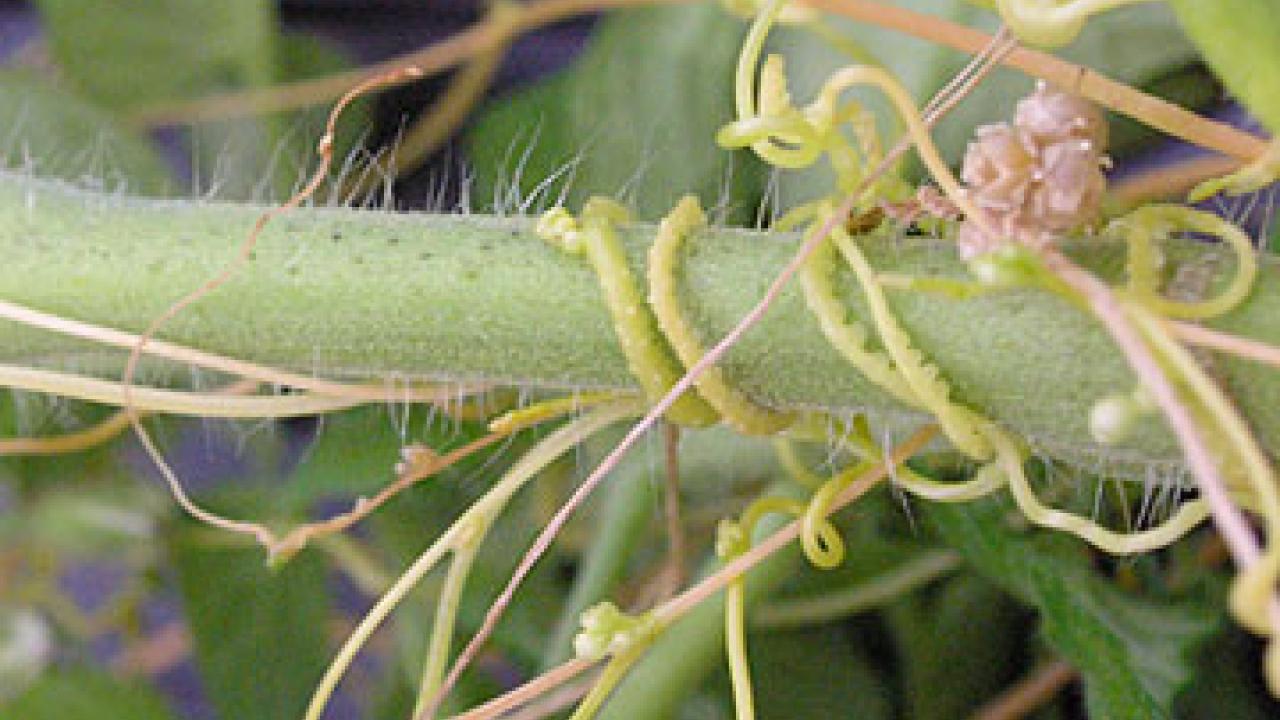A parasitic plant that sucks water and nutrients from its plant host also taps into its communications traffic, a new report finds. The research could lead to new ways to combat parasites that attack crop plants.
Professor Neelima Sinha and colleagues at the UC Davis Section of Plant Biology studied dodder vines growing on tomato plants in the lab. They found that RNA molecules from the host could be found in the dodder up to a foot (30 cm) from the point where the parasite had plumbed itself into the host.
Plants often use small RNA molecules as messengers between different parts of the plant. In a paper published in Science in 2001, Sinha's group showed that RNA could travel from a graft into the rest of the plant and affect leaf shape. Plants can also use specific RNAs to fight off viruses.
Picking up these RNA messengers could help the parasite synchronize its lifecycle with that of the host plant, Sinha said.
"It might be important for the parasite to know when the host is flowering, so it can flower at the same time," before the host dies, she said.
Sinha's lab holds a grant from the Rockefeller Foundation to research plant parasites, notably Striga, which attacks maize crops in Africa. Striga cannot be imported into the U.S., so dodder serves as a model system.
Ultimately, the researchers hope to use host RNA to trigger a change in the parasite that kills it or makes it less damaging, Sinha said. Finding that host RNA molecules are transported through the parasite is a step in characterizing the system, she said.
A paper describing the work is published online by the journal New Phytology. Co-authors on the paper are UC Davis postdoctoral researcher Rakefet David-Schwartz, graduate students Steven Runo and Brad Townsley, and Jesse Machuka of Kenyatta University, Kenya.
Media Resources
Andy Fell, Research news (emphasis: biological and physical sciences, and engineering), 530-752-4533, ahfell@ucdavis.edu
Neelima Sinha, Plant Biology, (530) 754-8441, nrsinha@ucdavis.edu
